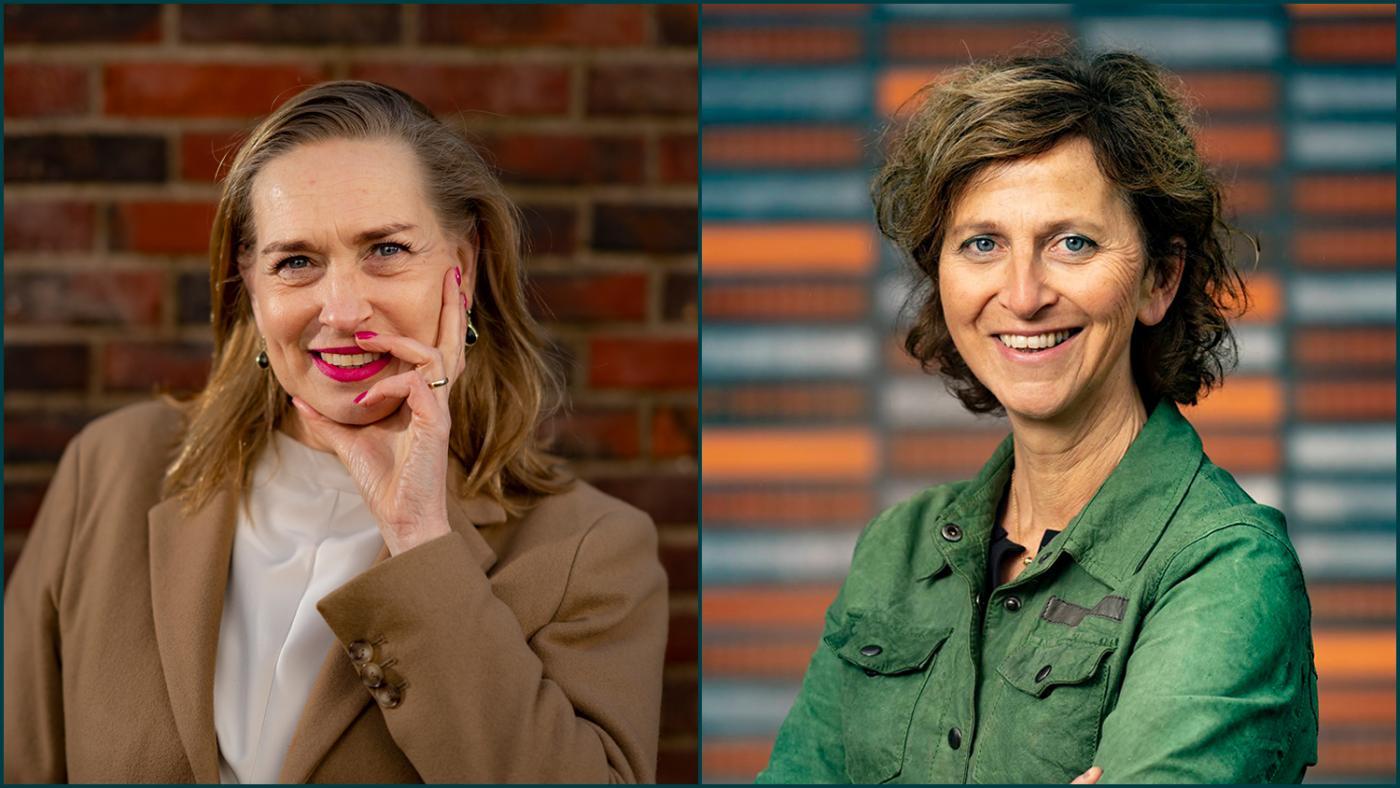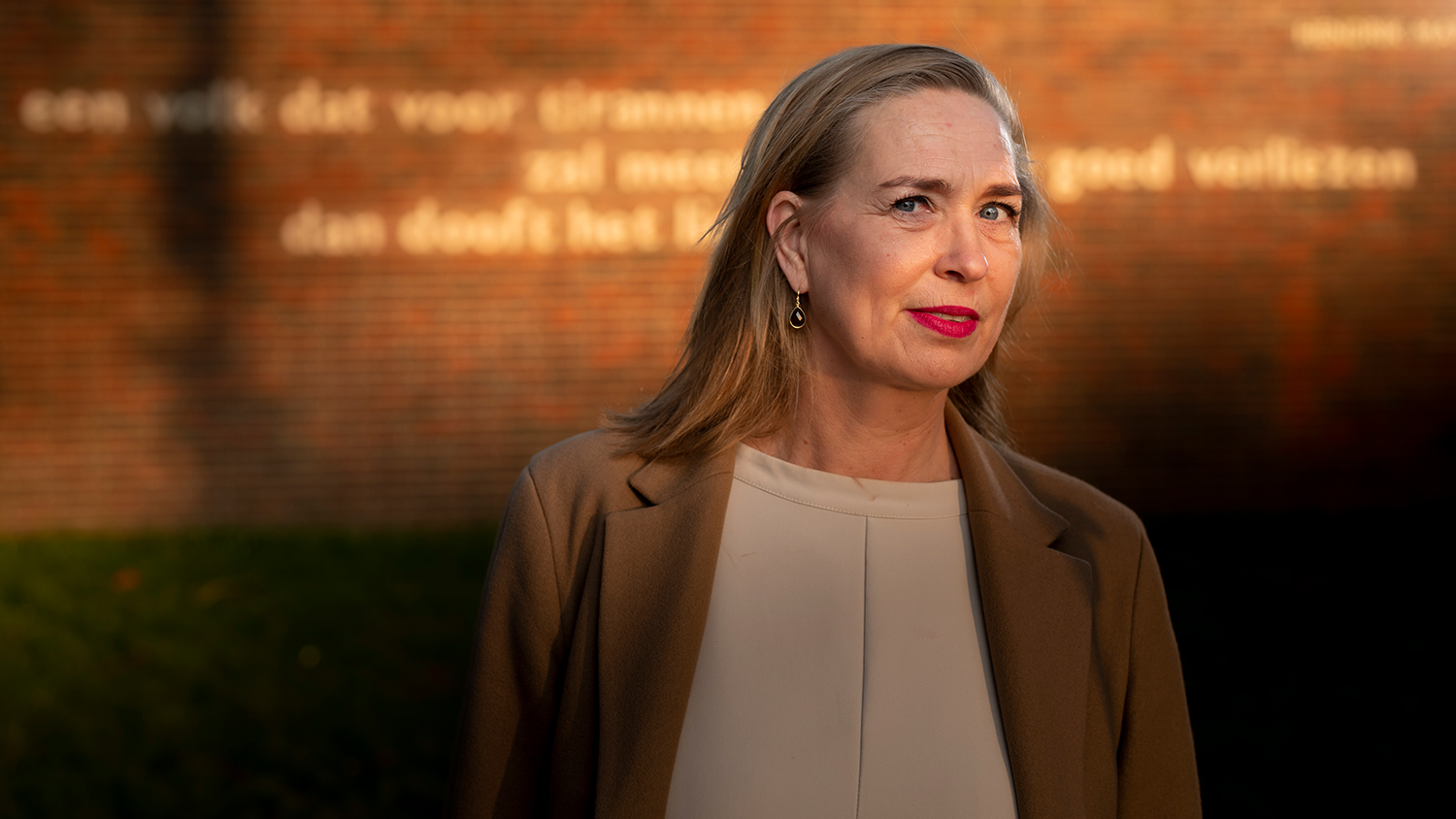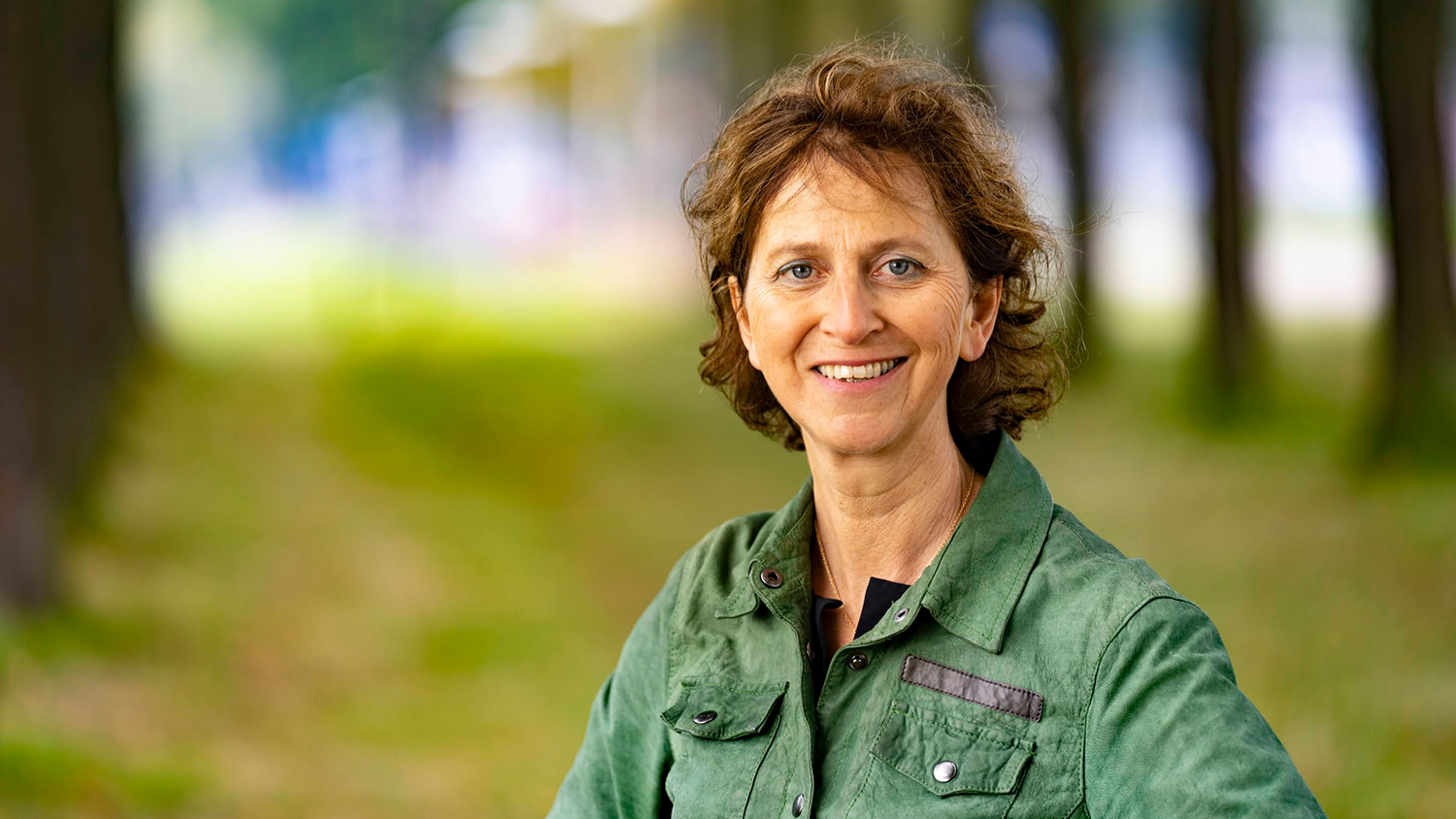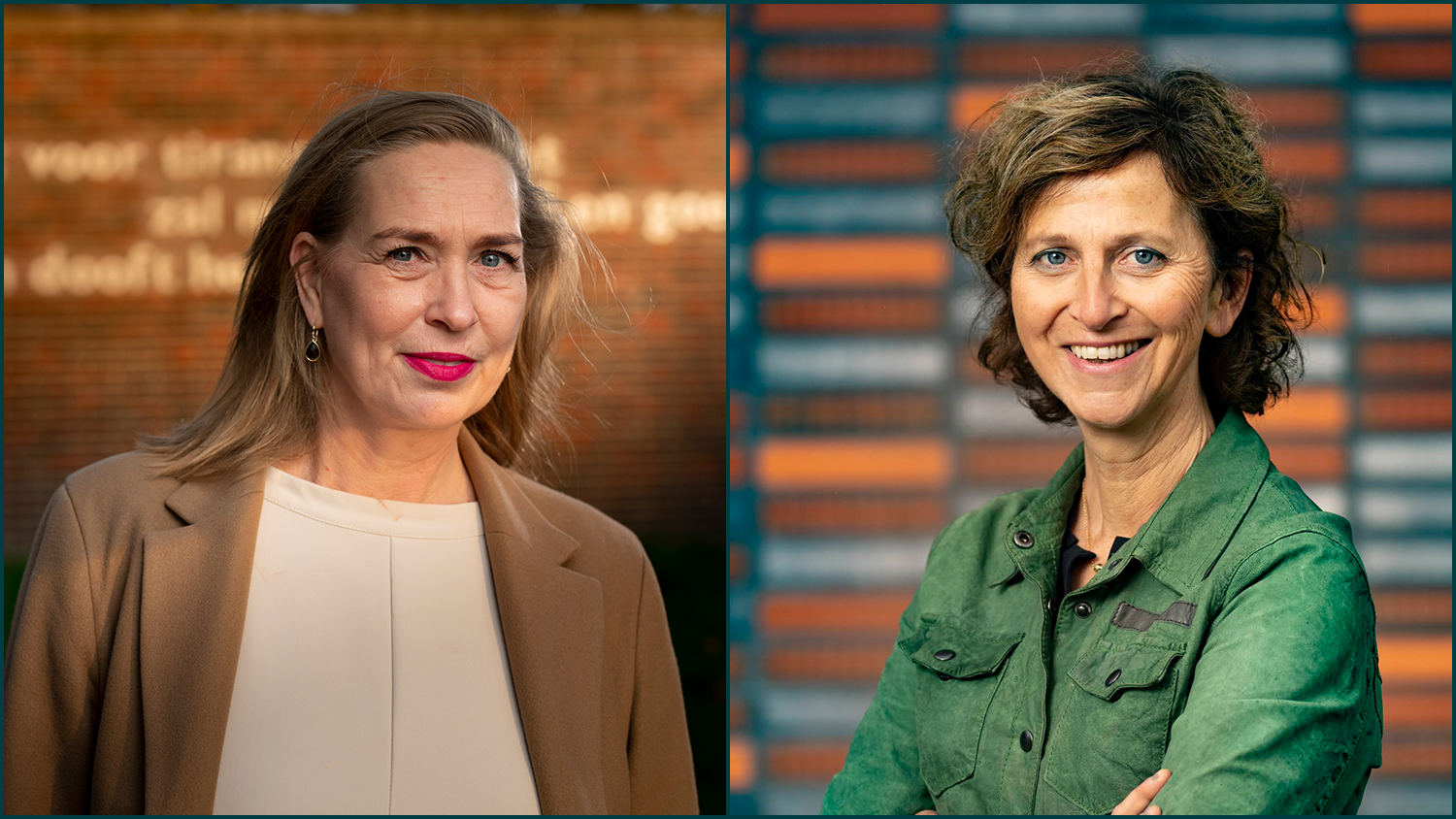Freedom in the pandemic: ‘Many measures weren't taken very democratically'

Now that the pandemic is slowly declining, it’s time to reflect on the past two years. What went well? And what could have been done better? This article is part of DUB's dialogue series, in which we invite scientists from different disciplines to discuss tough matters. To kickstart a new series of dialogues regarding the coronavirus pandemic, we've invited Cécile van Els and Barbara Oomen, who analyse the principles and conditions adopted by the government's restrictions from the medical and the legal perspectives, respectively. The conversation took place right before most restrictions were lifted in the Netherlands, on February 25. This means the Covid pass was put aside for the moment.
Van Els: “During the Covid-19 pandemic, the government guaranteed the right to protection from serious infectious diseases. From a medical point of view, that was the priority in a pandemic situation. The whole approach to the pandemic was based on independent scientific advice, such as that of the Health Council. The government followed most of it. The measures and interventions taken could irrevocably jeopardise other rights, which were put below the right to protection against infectious disease. For example, people's physical health was not doing so well, even though the government is supposed to protect that, too. A diabolical dilemma. My main focus was on the pharmacological aspect: the conditions for intervening or proposing a pharmacological intervention, such as the Covid vaccine. That's what I've tackled from the start: how is it going with the vaccines? How do they work? Why do they work, are they effective?"
Oomen: "Two years ago, when the pandemic began, I was teaching constitutional law. At the time, we examined how different countries embedded the coronavirus restrictions into their law. The way they did it in the Netherlands was lamentable. While other countries often had a Covid act establishing a legal foundation for the measures, the Netherlands introduced them under the emergency ordinance of the safety regions, which is not a democratic venue. The government argued that necessity knows no law, which is why they went ahead with it. Unbelievable, the measures were so drastic. How could they justify that? Later came the Covid-19 Temporary Act, with an enormous annex. But it took a very long time before there was legal argumentation".
Van Els: "While that’s a good way of showing what you’ve agreed on together as a society, I think it is binding for everyone. It should be well arranged legally. You should also be able to hold the government accountable: why did you do it this way? Why did you neglect something here? It's important to establish a clearer basis for the measures. Sometimes, one needs to come up with a strategy fast because of sudden events, such as the emergence of new variants. Current insights into the pandemic, the virus, vulnerable groups, and the degree of immunity have always oriented the scientific advice and information given to the government".
 Barbara Oomen (1969) is a professor of Human Rights Sociology at Utrecht University. Her research focuses on the interaction between law and society, with an emphasis on human rights and cultural diversity. Oomen is also affiliated with University College Roosevelt, UU's liberal arts college in Middelburg.
Barbara Oomen (1969) is a professor of Human Rights Sociology at Utrecht University. Her research focuses on the interaction between law and society, with an emphasis on human rights and cultural diversity. Oomen is also affiliated with University College Roosevelt, UU's liberal arts college in Middelburg.Oomen: "We are a democratic constitutional state. In the Netherlands, we’ve agreed on living together that way. The three powers of government, also known as trias politica, are important. First, you need an effective government policy. Then, when it comes to decision making, you need democratic involvement. That role is played by the elected parliament, which can join the debate on government policy. Finally, there’s the protection of minorities and the fundamental rights, often through a judge. During the pandemic, there was a strong emphasis on the effectiveness of the policy, which is incredibly important, but in the democratic constitutional state, it’s just as important that people can join the conversation on what is happening in the country, and that minorities are protected. Sometimes there were real pain points in the way the restrictions were announced and implemented. For example, the government first announced measures based on the recommendations of the Health Council at a press conference and only then were those measures discussed by the parliament. If you want to do it the royal way, then you should implement these fierce measures in consultation with the parliament. Therefore, many restrictions lacked a democratic nature".
Van Els: "We should learn from that. What should be done differently next time? There’s an entire assessment framework in which everything should be included. Take the QR code (Covid pass), for example. In order to keep using it, you still have to demonstrate the effectiveness of the measure. After all, restrictions should be necessary, proportional, and effective. If you’re vaccinated, are you really protected against the Omicron type, for example? What are you protected against? Against serious illness? And can you still transmit the virus or not? Right now, I don’t think the latter can be said through a green checkmark or a QR code, as it doesn’t say anything about whether you’re carrying the virus or whether you can transfer it. It only says you have a tiny chance of becoming seriously ill. It’s a good thing that the QR code has been put on hold so we can verify whether it’s still effective, although I think the measure can be very effective and important in some sectors. For example, in sectors with vulnerable groups, where it is desirable to demonstrate that staff have been vaccinated and are therefore less contagious and employable for longer".
Oomen: "Exactly. Restrictions like these require a proper legal reasoning. The QR code must be effective and efficient, and it should be clear what legal protection the measure is intended to achieve. For example, the right to health care of vulnerable groups. This is a legitimate government interest, as it’s the government's duty to work towards it. Should the discussion rise again, it’s important to explicitly state which right is at stake and how effective and efficient the measure is. Of course, one can say: "we realise that the measure violates other rights, such as the right to personal privacy and the right to freedom of movement and the right to participate in public life. However… the coronavirus restrictions are necessary, proportional, and effective".
 Cécile van Els (1961) is a professor of 'Vaccinology: Correlates of Protection' at Utrecht University and immunologist at the National Institute of Public Health and the Environment (RIVM). She conducts research on the immune response chain of the immune system, with the aim of promoting effective and sustainable protection against infectious diseases.
Cécile van Els (1961) is a professor of 'Vaccinology: Correlates of Protection' at Utrecht University and immunologist at the National Institute of Public Health and the Environment (RIVM). She conducts research on the immune response chain of the immune system, with the aim of promoting effective and sustainable protection against infectious diseases.Van Els: "We're also witnessing more and more polarisation precisely because freedoms have been compromised. People might feel that they are unjustly restricted. What can we do about that?"
Oomen: "Protests in the Netherlands are often calling for unlimited freedom now. There is no such thing. My freedom ends, so to speak, where your nose begins. The majority of fundamental rights are limited. That’s why the parliament should continue to say: "look, the QR code is intense. But the people who have been elected agree with it, due to the following reasons".
Van Els: "In my view, the Covid pass was also meant to separate people who are more at risk from those who aren’t during the worst of the pandemic. It was meant to prevent the unvaccinated ones, who are more at risk, from getting infected. The intention wasn’t to exclude this group but rather to protect them. It’s just that we must elaborate this word, 'protection.’ Are we talking about protecting someone from catching the disease themselves, or also protecting other people? Scientific data show that vaccines offered a 90-percent protection against getting seriously ill, but only 50 percent against contamination. Is that enough? I think that a 50-percent protection against contamination is great, too. But the more contagious Omicron variant turned everything upside down. Omicron has really been a gamechanger when it comes to the effectiveness of the QR code. We have to wait for new figures before we can really comment on this".
Oomen: "So the QR code is actually about protecting the unvaccinated against contamination and thus mortal danger. That’s a legitimate interest. You have to explicitly put this reason in the legislative proposal and convey this in the communication. Listening to you now, the message is clearer than when I heard it from the government".
Van Els: "Maybe because the government is focusing more on preventing the healthcare system from being overloaded and ICUs from filling up. This is an indirect consequence because unvaccinated people have a higher chance of becoming seriously ill and ending up in the hospital. If you give unprotected people access everywhere in the peak phase of a pandemic, they have a chance of coming across vulnerable groups and overloading healthcare. A measure such as the QR code has to be defensible. That is why, here in the Netherlands, we were reluctant to offer booster shots for a while: after all, the protection vaccines offered against serious illness was still very high with the delta variant. Booster shots should be effective, there must be health gains to be expected. Since the measure could not be adequately substantiated, the government was advised to wait with the booster shots, but start preparing a campaign anyway. With the lightning-fast arrival of the Omicron variant, there was a solid basis to give a booster shot".

Oomen: "Because of the ever-changing situation and knowledge about the virus, you have to revisit the measures all the time, in light of what you learn along the way. The level for the implementation remains at the exact same height. When a fundamental right is restricted, it still needs to be necessary and proportional. Another way of reaching the same goal should not exist."
Van Els: "The rules of the game are the same, but the players and thus the game itself have changed. We have a larger group that’s protected, even if the immediate immunity has decreased a bit. There’s still an array of memory mechanisms that line up your own defence faster when you get infected. The risks are different, just like Covid is different now. It’s become smarter, but luckily also milder.
"In addition, it also creates a palette of people with different degrees of immunity. It is like a hybrid immunity, because they got infected but also had two or three shots. It's difficult to assert that, if somebody has had the virus, their immune system has been trained enough for them to be protected for good. Since the players have changed, we get a different outcome."
Oomen: "If we adopt a restriction, we must keep a close eye on how it affects other rights. Is it still proportional? That's not a hard science, but with explicit weightings, we can ensure that the reasoning process is careful. A proportionality question is a way to test against other fundamental rights, which include psychological, social wellbeing and education as well. If the government coerces people to get the booster shot, it would have to be cautious about the connection with what the restrictions cause. For example, without a booster shot, you would not be allowed to go to the swimming pool, even though that is not good for your physical wellbeing. This careful consideration wasn't properly conducted with regards to the booster shot either. You have to keep showing why the measure is necessary for people's health".
Photos: www.ivarpel.nl/dub